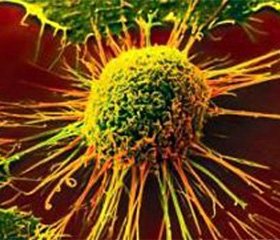Международный эндокринологический журнал 5 (45) 2012
Вернуться к номеру
Value of diagnostic radioiodine whole-body scanning after initial therapy in patients with differentiated thyroid cancer at intermediate and high risk for recurrence
Авторы: Rosario P.W., Furtado M.D., Filho A.F. et al.
Рубрики: Эндокринология
Разделы: Справочник специалиста
Версия для печати
Background. Diagnostic radiodine whole body scanning (DxWBS) in combination with stimulated thyroglobulin (Tg) (i.e. measurement after levothyroxine withdrawal or recombinant human TSH (rhTSH) administration) continues to be recommended for patients with differentiated thyroid cancer (DTC) at high or intermediate risk for recurrence with negative basal Tg and ultrasonography (US) after ablation. However, the value of DxWBS has been questioned, even in these cases.
The objective of this prospective study was to evaluate the value of DxWBS in these pati-ents.
Methods. The study consisted of 318 patients who had total thyroidectomy with apparent complete tumor resection for DTC. Further, per inclusion criteria, they had the following characteristics, (1) a post-therapy radioiodine whole-body scann (RxWBS) showing no metastases and uptake in the thyroid bed of ≤ 2 %, (2) classification as high or intermediate risk for recurrence based on large tumor size, tumor extension beyond the thyroid capsule, and lymph node metastases, (3) Tg during levothyroxine (L-T4) therapy (TgT4) of < 1 ng/ml, (4) negative anti-Tg antibodies (TgAb), and (5) normal US performed 8–12 months after ablation. Tg stimulation combined with DxWBS was performed in all patients. Patients without apparent disease in the initial assessment were followed up for 24 to 96 months.
Results. In the initial assessment, stimulated Tg continued to be < 1 ng/ml in 253 (79.5 %) patients and converted to levels >1 ng/ml in 65 (20.4 %). None of the patients had metastases on DxWBS, and 46 (14.4 %) had discrete uptake (< 0.5 %) only in the thyroid bed. FDG-PET and computed tomography revealed metastases in three patients with elevated stimulated Tg. Fourteen (4.4 %) patients without initially apparent disease relapsed during follow-up, including five (2 %) with initial stimulated Tg < 1 ng/ml. There was no disease-related death. Thyroid bed uptake on DxWBS had no prognostic value for recurrence, irrespective of stimulated Tg levels.
Conclusions. DxWBS can be avoided in patients with large tumors or extension beyond the thyroid capsule or lymph node metastases, but who show no apparent disease upon initial RxWBS and US and who serum TgT4 of < 1 ng/ml and negative TgAb after thyroidectomy and ablation.
Thyroid. — July 2012

